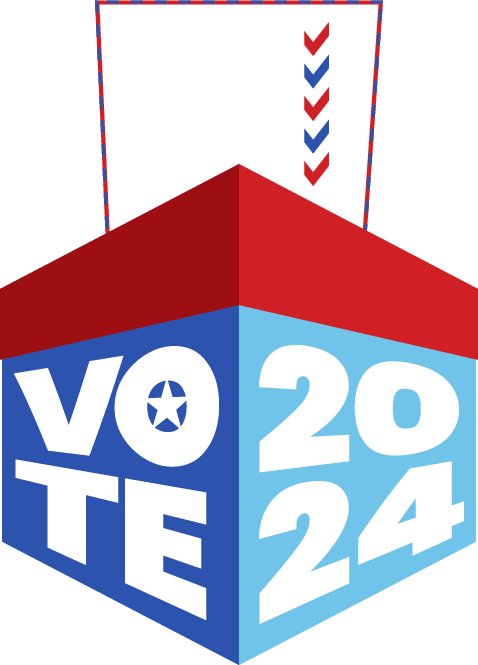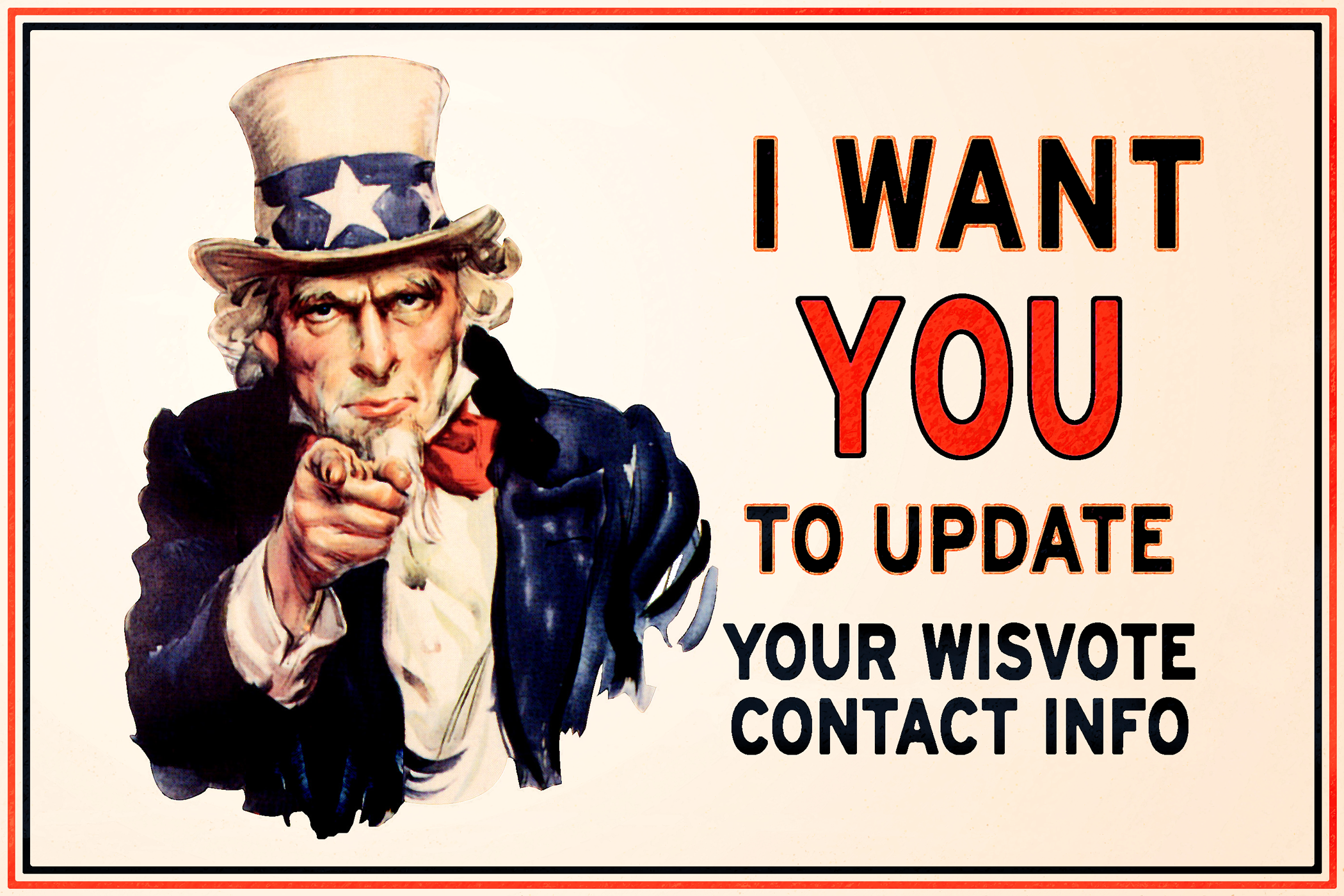
Contents
What to Know About Ballot Drop Boxes

Clerk communication answers questions, offers best practices
The Wisconsin Elections Commission on Thursday, July 11 issued new guidance to local election officials in the wake of the Wisconsin Supreme Court’s decision in Priorities USA vs. WEC. This ruling held that secure drop boxes were permitted under state law as a valid method of absentee ballot return. The decision is binding on all lower Wisconsin courts. The use of drop boxes is not mandatory and is at the discretion of the municipal clerk.
In response to a series of questions from clerks and to assist elections officials in preparing for this change, the six-member Commission voted to release an FAQ document in a recent Clerk Communication about the status of drop boxes in Wisconsin elections.
Key takeaways from the Supreme Court decision
Each of these topics and others are explored more fully in the FAQ document.
- The decision permits all municipal clerks to choose to use secure absentee ballot drop boxes in their jurisdiction if they wish, starting immediately.
- The decision explicitly states that it does not require clerks to use drop boxes, it just says that the law permits clerks to utilize them if they choose.
- The Priorities USA decision does not mean the Commission’s previous memoranda dated March 31, 2020, and August 19, 2020, relating to drop boxes are back in effect. Those memoranda were withdrawn as part of the Teigen litigation in 2022 and are no longer in effect.
- The Court held that state law permits clerks to lawfully utilize secure drop boxes, but the decision did not provide guidance on what it means for a drop box to be “secure.” The Commission’s FAQ document provides a deep list of suggested best practices for ensuring drop boxes are secure. The suggested best practices are consistent with guidance from the U.S. Election Assistance Commission (EAC) and the Cybersecurity and Infrastructure Security Agency (CISA).
If you have additional questions, please email @email

Latest CISA Training Highlighted Generative AI and Its Potential Impact on Elections
There's still time to sign up for next month's training on Aug. 1, The Power of Hello/De-escalation, and to join other trainings put on by the Cybersecurity and Infrastructure Security Agency (CISA).
The Wisconsin Elections Commission continues to partner with CISA to offer clerks trainings on timely, relevant topics during the 2024 election season.
Some previous CISA-sponsored trainings hosted by WEC were recorded and either are, or will soon be, available for clerks to view on ElectEd.
There is still time to sign up for the final training in our CISA-sponsored webinar series. That training, The Power of Hello/De-escalation, will be on Aug. 1 at 9:30 a.m. and will cover best practices around de-escalating potentially confrontational situations.
Additionally, CISA is also offering round two of its #Protect2024 webinar series, with tons of great training opportunities there as well. Check out this clerk communication for more information.

Processing EDR Postcards
July 1 was the statutorily required deadline to enter in Election Day Registration (EDR) Postcard statistics for the April Spring Election.
Users do this work directly in the election. The ability to update these numbers always remains open in an election, even when an election is closed. If a municipality did not have any EDR postcards returned, meaning no EDR postcards came back as undeliverable for April, zeroes still need to be entered into the report. When the EDR postcards report is complete (numbers entered in all fields), it will not move to a completed view, like reconciliation does; the report always stays active and accessible.
The next statewide round of EDR Postcards will be sent after the Aug. 13 Primary and will need to be processed by Nov. 11.

We're Hiring!
The Wisconsin Elections Commission is hiring an Elections Specialist Limited Term Employee (LTE)in each of Wisconsin's eight municipal clerk districts to assist with the 2024 Election Cycle. These positions will conduct public outreach, education, training, and technical assistance to county and municipal clerks in the administration of elections, WisVote, and Badger Books.
Ideally, we would like to hire former local election officials or chief election inspectors throughout the state. These positions will have the flexibility to work remotely and are limited to working 20-40 hours per week through Dec. 2024.
Per state statute, applicants must not currently be serving as a local election official; have held a partisan political office in the past, including a county clerkship; or have given a political contribution to a candidate for partisan state or local office in the 12 months prior to appointment.
Interested applicants should submit their resume with qualifications to Sharrie Hauge at @email or contact her directly at 608-266-0404 with any questions. For additional information, please see the attached job posting.
The deadline to apply for these positions is Aug. 2, 2024, or until filled. We look forward to this opportunity to work with you to ensure a fair, transparent, and helpful election cycle for all.
See Something, Say Something turns 14
We all have something or someone to protect. For 14 years, the #SeeSay campaign has remained committed to keeping the American public safe through awareness and vigilance. One tip could make the difference.

Reminder: August 2024 Partisan Primary Social Media Posts for Clerks Now Available
Recently, the Wisconsin Elections Commission’s Public Information Office sent you updated social media resources to use in the days ahead of the August 2024 Partisan Primary. The batch of suggested social media posts, “Summer 2024 Social Media Posts for Clerks,” with graphics, are for you to use on Facebook, X (formerly known as Twitter), or other social media pages.
The social media posts cover a variety of pre-election and Election Day topics, from voter registration to absentee voting to finding your polling place on Election Day. Included in the materials is a Word document that contains the suggested social media post and accompanying image or graphic, the suggested timeframe when the post should be made, the topic of the post, and information indicating whether the post contains time sensitive information (such as if the post must be made on a specific day).
Also included in the materials is a ZIP file that contains images that can be used along with text in social media posts. You are encouraged to download the ZIP file, extract it into a folder, and use the images for social media posts.
The social media posts are just suggestions, and you should feel free to tailor them in way that makes sense for your own community.
Additionally, clerks should be made aware of a new communications guide, “Enhancing Election Security Through Public Communications,” developed by the Cybersecurity and Infrastructure Security Agency (CISA) and the U.S. Election Assistance Commission (EAC). The guide helps election officials apply communication best practices to election processes, including providing a suite of templates to support election officials in developing their own communication plan.

Streamlined Training Coming to ElectEd!
As of June 28, 2024, WisVote access training will be updated and streamlined to more closely align with requirements. Users will no longer need to duplicate modules when going from Data Entry to Clerk roles and will receive credit for all modules reviewed in ElectEd. You can review the specifics by looking at the training courses in ElectEd here. If you don’t have ElectEd access yet you can request it via this form.
Cybersecurity News

If You See Something, Say Something
The U.S. Department of Homeland Security’s (DHS) “If You See Something, Say Something” campaign highlights the importance of identifying suspicious activities and reporting them to the appropriate security contact.
Common signs of suspicious activity include:
- Expressed or implied threat: Threatening to harm or kill people, or damage a facility or office, either verbally or in writing
- Testing or probing of security: Testing a facility’s physical security or cybersecurity
- Breach/attempted intrusion: Trying to enter a restricted area, including impersonating authorized personnel
- Eliciting information: Asking about a facility’s purpose, operations, etc. at a level beyond mere curiosity
- Misrepresentation: Using false or incomplete statements to gain access to sensitive areas or information
- Cyberattack
The DHS notes that these activities should only be reported if they’re conducted in a manner that would arouse suspicion of crime, and that an individual’s appearance, including their race, ethnicity, gender or national origin, does NOT constitute suspicious activity. More signs, as well as an infographic, can be found here.
So, what should you do if you observe suspicious activities?
In Wisconsin, call the Wisconsin Statewide Intelligence Center (WSIC) at 1-888-DCI-WSIC. If it’s an emergency, call 911. When reporting suspicious activities, be sure to describe the following things to law enforcement:
Stay tuned for more cyber security tips in our upcoming newsletters.
- Who or what you saw
- When you saw it
- Where it occurred
- Why it’s suspicious
Interested in educating your staff on “If You See Something, Say Something?” The DHS offers many resources you can post in your office and distribute to your staff.

Next Election:
Polls open at 7 a.m. on August 13, 2024

Make Sure Voters Can Find You!
Check your staff info on MyVote
Maintaining your contact information and staff list in WisVote is crucial for ensuring that voters can contact your office, and that only active election officials have access to this sensitive database. You can easily verify that your municipality's clerk contact information is correct by using MyVote. Click on the " Find My Clerk " link in the footer and enter a local address.
Also, as a matter of routine, please keep the WEC Helpdesk aware of any incoming staff members who need WisVote access, or outgoing staff members whose access should be removed, and the dates to change their access.
Please contact the WEC Helpdesk if you have any questions about your staff's WisVote.
Upcoming Dates & Deadlines
Upcoming Events
- July 25, 2024 – First day for clerks to issue certificate of registrations (EL-133) to late registrants who register to vote in person.
- July 30, 2024 – In-person absentee voting for the Partisan Primary may begin
- August 8, 2024 – Deadline for most electors to request absentee ballots
- September 19, 2024 – Deadline for municipal clerks to send absentee ballots to electors with valid requests on file for the General Election.
Upcoming Commission Meetings
- July 26, 2024 – Special Meeting
- Aug. 27, 2024 – Special Meeting
Upcoming Elections
- July 30, 2024 – SD4 Special Election
- August 13, 2024 – Primary Election
- November 5, 2024 – General Election
